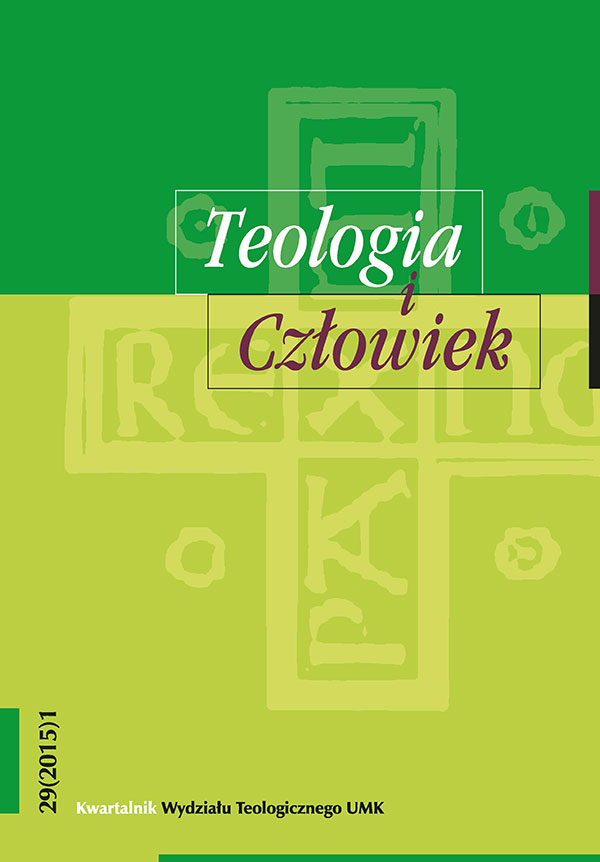Ajschylos, Sofokles, Eurypides. Religijność trzech tragików greckich
DOI :
https://doi.org/10.12775/TiCz.2015.009Mots-clés
Ajschylos, Sofokles, Eurypides, religia grecka, religijność dramatów greckich, dramat grecki, tragedie greckieRésumé
Klasyczny dramat grecki nie tylko dogłębnie wniknął w naturę ludzką, lecz także miał religijną treść i kontekst. Tragicy byli w pewnym stopniu teologami. Ajschylos wybierał tematy mitologiczne. Jego logiczny umysł popchnął go ku deterministycznemu fatalizmowi; jego poczucie porządku sprzyjało stałym regułom moralnym. Apollo i Atena są bardziej osobowi i bardziej przyjaźni niż Zeus. Prometeusz działa na rzecz ludzi, ale wbrew regułom świata. Akcja dramatów Sofoklesa jest bliższa życiu ludzkiemu, ale widzianemu w świetle religii. Były one naznaczone wiarą w los, utożsamiony z boską wolą, a tym samym apologetycznie usprawiedliwiony. Wierzył on, że zasady moralne i religijne są ważniejsze od polityki. Eurypides, wbrew pewnym opiniom, był osobiście religijny, nawet jeśli stawiał śmiałe pytania dotyczące cierpienia i zła. Wypowiadał krytyki pod adresem bogów, ale także deklarował zaufanie do nich i przedstawiał wybawienie przychodzące od bogów, czasem w formie cudownej. Wśród motywów greckich bliskich chrześcijaństwu możemy podkreślić ofiarę za innych. Sprawiedliwość, miłość i przebaczenie są boskie. Pytania zadawane przez wielkich tragików utorowały drogę dla odpowiedzi Ewangelii.
Téléchargements
Publié-e
Comment citer
Numéro
Rubrique
Licence
CC BY ND 4.0. Posiadaczem prawa autorskiego (Licencjodawcą) jest Autor, który na mocy umowy licencyjnej udziela nieodpłatnie prawa do eksploatacji dzieła na polach wskazanych w umowie.
- Licencjodawca udziela Licencjobiorcy licencji niewyłącznej na korzystanie z Utworu/przedmiotu prawa pokrewnego w następujących polach eksploatacji: a) utrwalanie Utworu/przedmiotu prawa pokrewnego; b) reprodukowanie (zwielokrotnienie) Utworu/przedmiotu prawa pokrewnego drukiem i techniką cyfrową (e-book, audiobook); c) wprowadzania do obrotu egzemplarzy zwielokrotnionego Utworu/przedmiotu prawa pokrewnego; d) wprowadzenie Utworu/przedmiotu prawa pokrewnego do pamięci komputera; e) rozpowszechnianie utworu w wersji elektronicznej w formule open access na licencji Creative Commons (CC BY-ND 3.0) poprzez platformę cyfrową Wydawnictwa Naukowego UMK oraz repozytorium UMK.
- Korzystanie przez Licencjobiorcę z utrwalonego Utworu ww. polach nie jest ograniczone czasowo ilościowo i terytorialnie.
- Licencjodawca udziela Licencjobiorcy licencji do Utworu/przedmiotu prawa pokrewnego nieodpłatnie na czas nieokreślony
PEŁEN TEKST UMOWY LICENCYJNEJ >>
Stats
Number of views and downloads: 2453
Number of citations: 0



